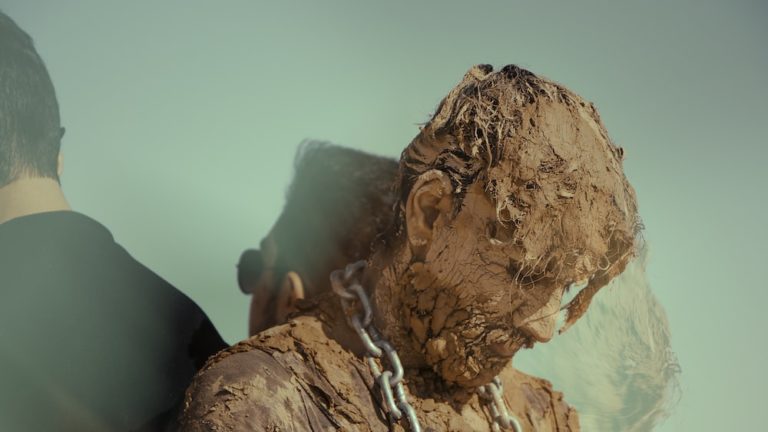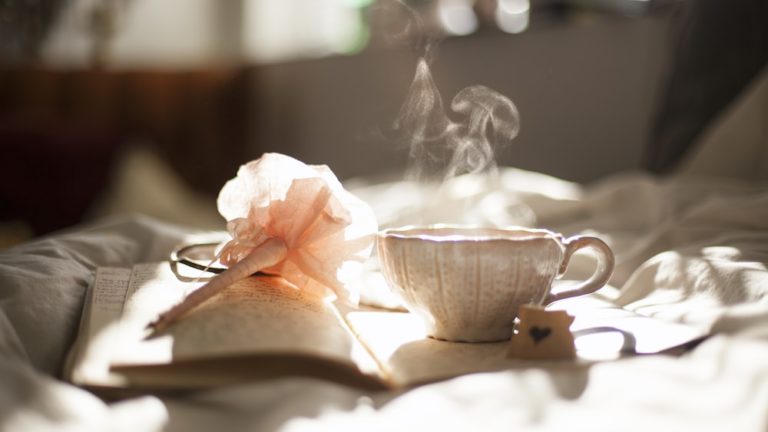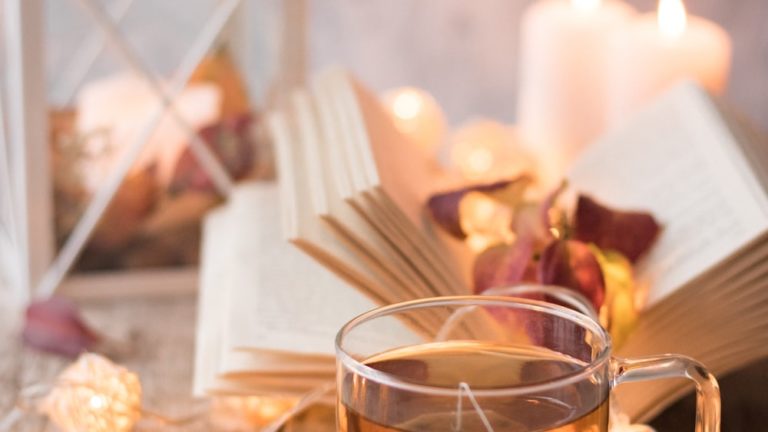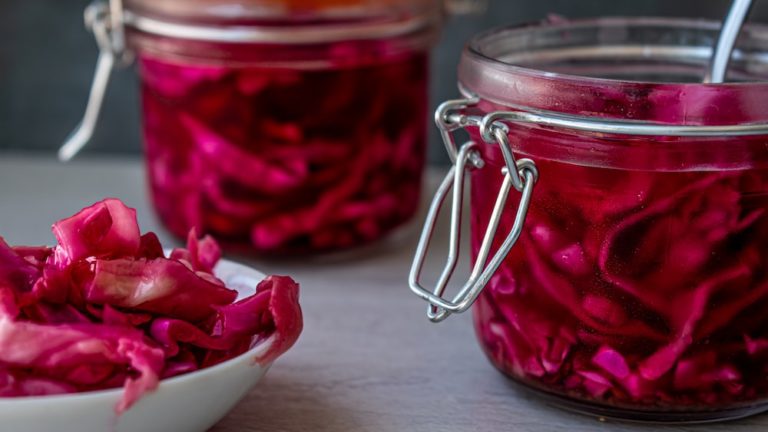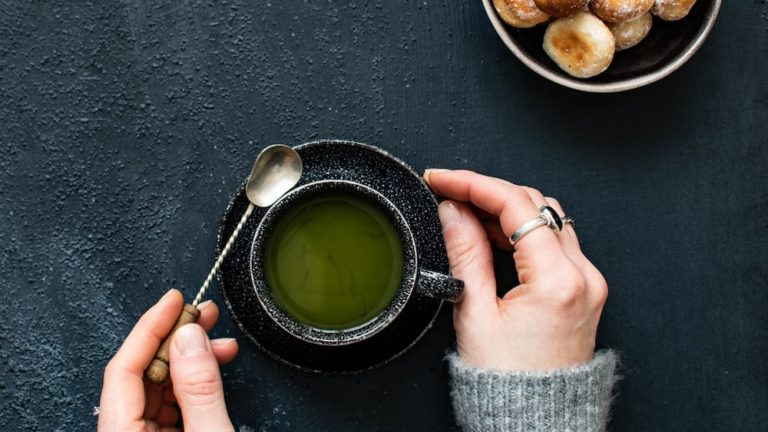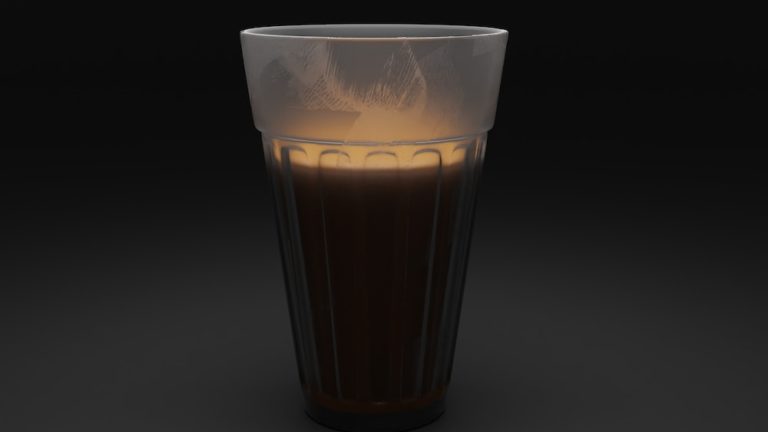Does White Tea Have Caffeine? Unveiling The Truth
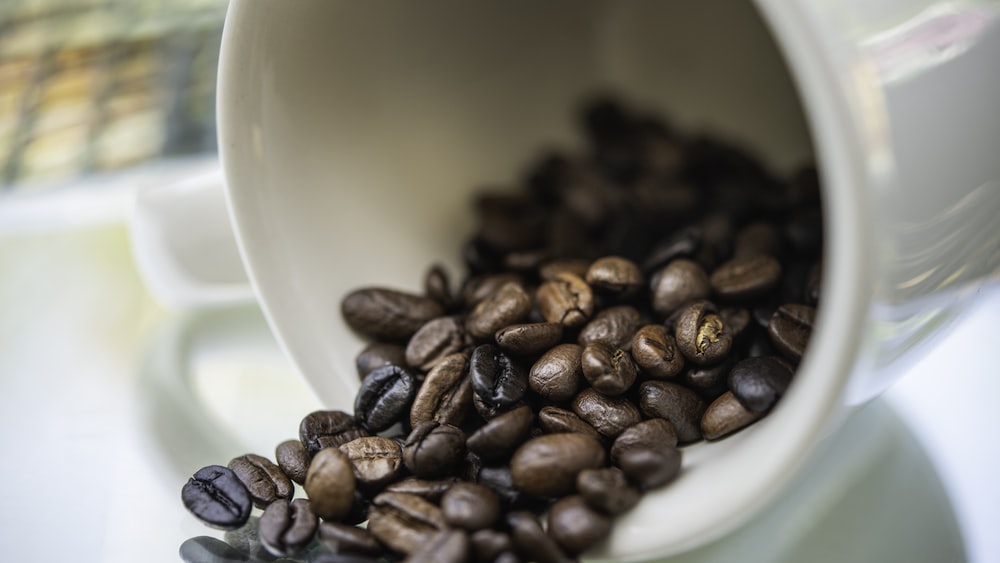
Does White Tea Have Caffeine? Unveiling The Truth
Ever been cornered at a party with someone waxing lyrical about how white tea has absolutely no caffeine content? Don’t you hate it when you’re all amped up and looking for some caffeine-fueled discourse, only to have the other person treat you like a caffeine illiterate?
Ah, the irony. The humor is not lost on us: while I’ll be the first to admit that tea talks at gatherings are perhaps as stimulating as watching paint dry, they can become the cradle of countless misconceptions, and today, we’re going to take our teaspoons and stir up the truth.
Ladies and Gentlemen, tea lovers, health enthusiasts, and the proverbially curious cat, welcome to the conspiratorial world of white teas and their caffeine content. Here’s your golden ticket to the delectable world of white tea and its quintessential characteristics. We’re about to take you on an exhilarating journey, complete with scenic detours through myths, facts, and insights backed by credible research.
Why, you ask, are we focussing on white tea and the much-debated caffeine content today? To answer that, we need to put on our detective caps, brew a steaming mug of tea (white, we hope), and settle in. This isn’t just an exploration of whether your favorite cuppa possesses caffeine. Nay, it’s much more than that. It’s a paradigm shift, peeking behind the tea leaves, and dragging the often misunderstood world of white tea into the limelight. So sit tight, sip responsibly, and brace yourselves for a journey of enlightenment.
Understanding White Tea
Consider this your Tea 101 class, where we immerse ourselves in re-defining our relationship with White Tea. Like loving someone, understanding a tea requires patience, depth, and a seasoning of humor. Are you ready to forge an intimate bond with your beloved cup of white tea, caffeine shrouded in mystique and all? Let’s dive in.
What is White Tea?
White Tea, the Starboy in our tea universe today, dons a princely avatar. But what makes it truly ‘white,’ and what distinguishes it from the motley crew of greens, blacks, and oolongs? It’s all hinged on the art of subtlety and gentle sophistication.
Sourced from the same plant as green, black, and oolong teas – Camellia sinensis – white tea isn’t a result of underground secret societies crafting a beverage that would stir up debates at dinner tables. Instead, it’s a royal creation, cherished for its minimal processing and maximum natural presentation.
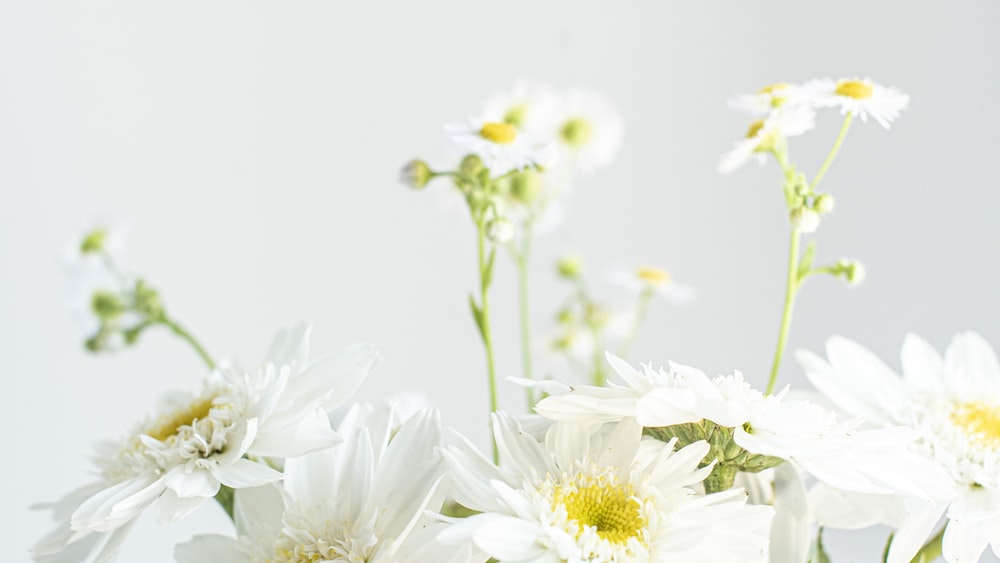
White tea is a royal creation, cherished for its minimal processing and maximum natural presentation, which distinguishes it from other types of tea.
How is White Tea Made?
The journey of white tea, from a tiny bud to your teacup, is a saga worth immersing ourselves in. Once upon a time in the tea farms of Fujian Province, China, under the warm caress of the sun’s rays, a complex tale of pluck, wilt, and dry is orchestrated.
- Pluck: In early spring, while the rest of nature is lazily stirring awake, tea farmers are busy plucking the most tender tea leaves and unopened buds, still coated with silver-white hairs. The dawn’s sleepy hues serve as the perfect backdrop for this delicate operation.
- Wither: Once plucked, these leaves are spread out, typically on bamboo trays, exposed to natural sunlight. As these leaves embark on their whitening process, they exhibit a striking resemblance to a sun-bather loyally turning over to get a well-rounded tanning effect. Talk about being sun-kissed!
- Dry: As our tea leaves attain their perfect sun-dappled hues, they are subjected to drying. This phase sees no rolling, no oxidation – a testament to the minimalist nature of white tea processing.
How is White Tea Different from Other Teas?
Ever wondered why white tea stands tall and distinguished amidst other teas, defying the law of the land with its caffeine content? The answer lies in its subtlety. While all teas have their charm, white tea takes the crown for the ‘Closest to Nature’ due to minimal processing.
From a botanical standpoint, it’s the same plant performing different flavors, like a gifted actor springing disparate roles on stage. Yet, the making of white tea leaves no room for intense interactions seen in the preparation of black, green, or oolong teas. Thanks to its low-intervention production process, white tea manages to preserve a higher level of antioxidants while providing an elegantly subtle flavor.
The Caffeine Content in White Tea
Folks, let’s find ourselves face-to-face with the elephant in the room – the elusive caffeine content in white tea. Is it a myth, a reality, or a sleight of hand? Let’s step inside the shrouded chamber of secrets, and emerge, enlightened.
Does White Tea Contain Caffeine?
Drumroll, please. The answer to the much-debated question, “Does white tea contain caffeine?” is a resounding “Yes.” There, I said it. The white tea cathedral has shattered, right? Hold onto that gasp! White tea does contain caffeine, but before you toss your teacup in despair, let’s explore the grey areas behind this revelation.
Yes, white tea has caffeine, but before you throw your arms up in disbelief, consider this. The caffeine content isn’t one-size-fits-all across all types of teas. Factors such as plant variety, methods of cultivation, processing, and even brewing techniques can impact the caffeine content. Just when you thought ‘White tea = caffeine’, you realize it’s not that black-and-white after all!
Factors Influencing the Caffeine Content in White Tea
If we’ve stirred up an endearing chaos by revealing that white tea does contain caffeine, we beg your indulgence as we delve into the factors influencing this caffeine sequence.
Type of Tea Leaf: While it might be simpler to think all tea leaves are born equal, they’re not. Younger leaves and buds usually contain more caffeine than mature leaves. Don’t shoot the messenger – it’s science, and that’s just how the cookie crumbles… or in our case, how the tea leaf unfurls. Length of Infusion: Imagine soaking blissfully in a warm tub – the longer you soak, the more relaxed you feel.
This is precisely how tea leaves react with water. The longer the infusion, the higher the caffeine extraction. Water Temperature: Chilly sea swims versus warm hot springs – the experience, much like the outcome, is vastly different. Similarly, higher water temperatures tend to extract more caffeine. Who knew brewing tea had so much in common with taking a dip!
Sometimes, understanding tea (and its caffeine content) is akin to unraveling a Sherlock Holmes mystery. It’s intricate, layered, and filled with twists, all brewing under one lid. But isn’t that part of the charm, really?
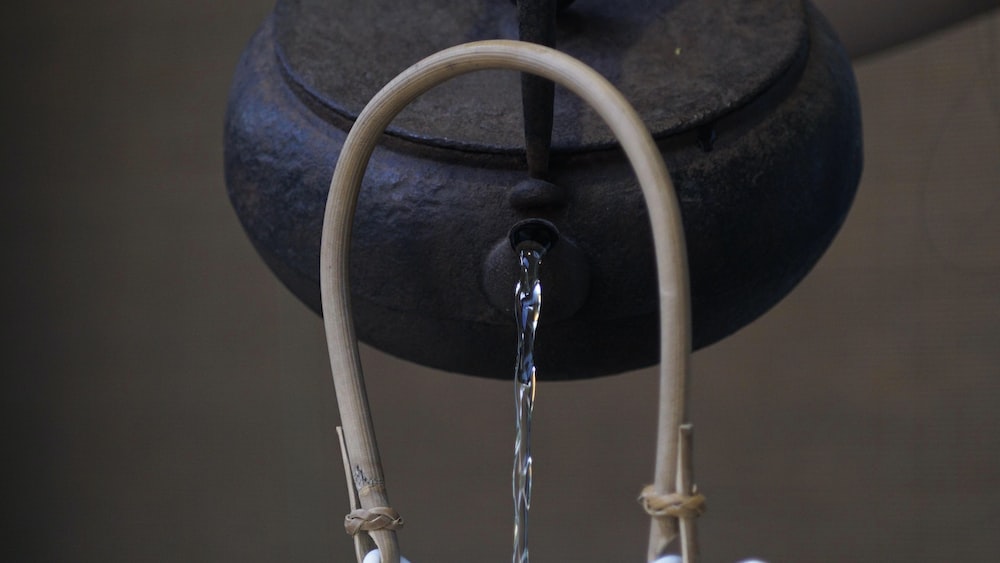
Debunking Myths About Caffeine in White Tea
Brew a nice cup of white tea and settle in, folks, because it’s time to tackle some myths and misconceptions head-on. We’re about to embark on an exhilarating journey, venturing deep into the world of caffeine in white tea, tips, tricks, and “tea-tales” that even the Mad Hatter would raise an eyebrow at.
Common Misconceptions About White Tea’s Caffeine Content
A common misconception that’s been floating around like a stubborn tea leaf refusing to steep is the belief that white tea contains no caffeine whatsoever. This couldn’t be further from the truth. Just like any other tea that originates from the Camellia sinensis plant, white tea has caffeine. The degree varies, of course, but it’s there.
People often think that because white tea is lightly processed, it’s the “baby” of the tea family in terms of caffeine. The reality, however, is a bit more nuanced. While it’s true that white tea goes through minimal processing (like the shy cousin who always sits in the corner at family gatherings), this doesn’t automatically mean it has the least caffeine.
Another popular misconception is that the paler the brew, the lesser the caffeine. Let’s be honest here, if the color of the brew were an indicator of its caffeine content, many a coffee lovers would have been sorely disappointed at their first sip of espresso.
The Truth About Caffeine Levels in White Tea
The caffeine content in any tea (including our worthy protagonist, white tea), is a thrilling combination of various factors. These include the type of tea plant, the part of the plant the leaves are plucked from, and the brewing method – just to name a few. Brace yourself for a shock – even the time of day and year the leaves are plucked can have an impact on caffeine content!
There’s no hard and fast rule to predict the caffeine content in white tea. Having said that, on average, a cup of white tea contains around 15-30 milligrams of caffeine, far less than the whopping 95 milligrams typically found in a cup of coffee. So, yes, white tea is the more caffeine-conservative member of the tea family.
The Effects of Caffeine in White Tea
Before we stir the pot and tumble down this rabbit hole, let’s remember a key point – caffeine affects everyone differently. As we step into this uncharted territory, remember: one person’s pick-me-up might be another’s ticket to Sleepyville.
Benefits and Drawbacks of Consuming Caffeine
If my Aunt Maude’s undying love for her morning cuppa is any clue, caffeine certainly has its devotees. The uplifting effects of caffeine on mood and mental alertness are indisputable. Scientists have found that caffeine may reduce the risk of Parkinson’s disease, gallstones, and even liver disease.
However, the road to caffeine is not all smooth sailing. Some of the potential drawbacks of caffeine include restlessness, heart palpitations, and that dreaded insomniac stare at 3 am. Everybody’s caffeine tolerance is different – it’s important to know your own limits.
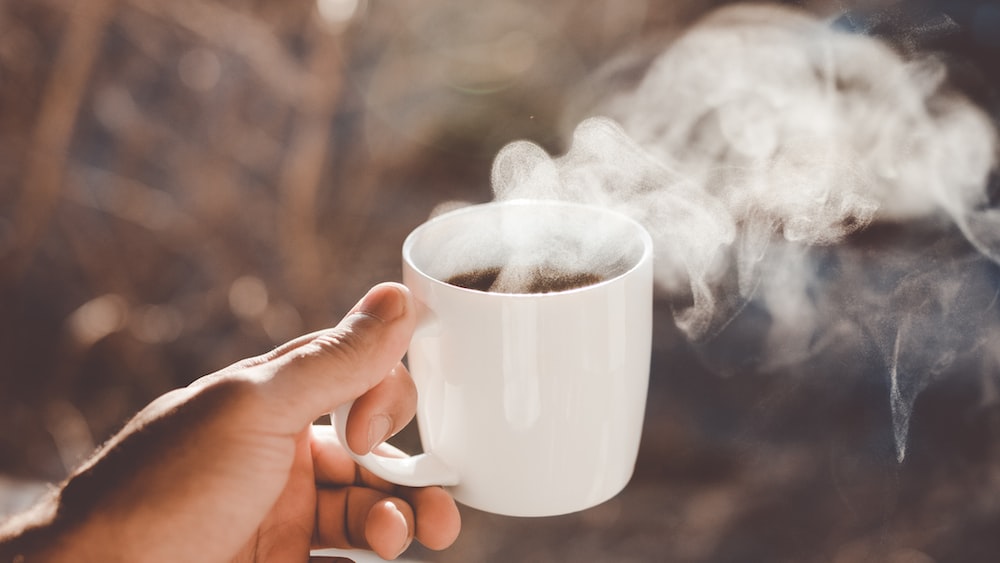
There’s always that fear that consuming too much caffeine may lead to dependence. You know how it goes – one cup leads to two, two leads to four, and before you know it, you’re eyeing the teapot with an unspeakable longing at all hours.
Caffeine has its benefits, such as reducing the risk of certain diseases, but it’s important to know your own limits and avoid consuming too much to prevent potential drawbacks and dependence.
Is White Tea a Good Choice for Caffeine-Sensitive Individuals?
So, where does white tea come in all this caffeine brouhaha? While everyone’s tolerance is different, it’s safe to say that white tea is a much gentler option for those sensitive to caffeine.
The exact amount of caffeine in your cup of white tea may vary due to the factors discussed earlier. But the rule of thumb remains – white tea generally contains less caffeine than black or green teas. So, if you’re caffeine-sensitive but still crave the ritual of a nice, warm brew, white tea could be your new best friend.
For those wary of caffeine but also craving for a little pick-me-up, white tea seems to strike a perfect balance. It provides a gentle nudge, as opposed to the hard shove that a cup of coffee can sometimes be.
How to Prepare White Tea for Maximum Flavor and Health Benefits
Now that we’ve unraveled the mystery of caffeine in white tea, let’s steep into the realm of brewing the perfect cup. After all, what’s knowledge without the power to make a fantastic cup of tea?
Brewing Process of White Tea
Ah, the brewing process – the make or break moment for every cup of tea. Although white tea requires less handling than other tea products, it demands delicate attention when brewed to release its full potential.
First things first: water. Fun fact – different leaves require different water temperatures. For white tea, we’re aiming for temperatures between 160°F to 185°F. Any hotter, and you might scorch the leaves, ending up with a bitter brew that not even your worst enemy deserves.
Next, steep time. Around 1 to 3 minutes will do. But, as with all rules, there are exceptions. Some believe that brewing white tea longer can actually enhance the flavor without increasing bitterness. At the end of the day, it’s all about exploring and finding what works best for you.
Lastly, appreciate the tea! The taste of white tea is subtle, with notes of sweetness and a refreshing quality. Pause. Sip. Enjoy. Life’s too short for rushed tea drinking.

Tips for Preparing White Tea
Making white tea is not rocket science, but it is somewhat similar – it’s all about finding that celestial sweet spot of optimal temperature and brew time. Oops, took the metaphor train too far, didn’t we? All aboard, fellow tea enthusiasts!
Step one for a perfect cup of this divine tea type: tune into the zen mode. Yeah, you heard it right. White tea has delicate leaves that demand your undivided attention and a pinch of love, like a fluffy kitten that cradles in your lap purring softly. Stay patient and never use boiling water. Instead, use water heated to 160-180 degrees Fahrenheit.
FAQs
1. How much caffeine is in a cup of white tea?
Speaking of caffeine content in white tea, this often misunderstood tea type stands somewhere in the realm of 15-30 mg per eight-ounce serving. However, this can vary depending upon factors like steep time, temperature, and leaf size.
2. Is there a caffeine-free white tea?
While there are decaffeinated versions available, unfortunately, there’s no naturally caffeine-free white tea. This is because all true tea, including our beloved white tea, comes from the Camellia sinensis plant, which naturally houses caffeine.
3. How does the caffeine content in white tea compare to other teas?
When compared to other teas, the caffeine content in white tea could either have you jumping over the moon or calmly floating among the stars. That’s to say, it’s lower than black and green tea, but higher than some herbal tisanes.
4. What factors affect the caffeine content in white tea?
Look, it’s not just the whims of the tea gods. Several factors influence the caffeine levels in white tea, including the cultivation technique, the part of the tea plant used, and the steep time and temperature used during brewing.
Conclusion
In our caffeinated journey exploring the intricacies of white tea, we’ve debunked myths, uncovered truths, and maybe even convinced some coffee lovers to add this tea type to their daily routines. But let’s not celebrate just yet. Remember, the essence of white tea, or any tea for that matter, is not just about the caffeine content or its potential health benefits. It’s more about the serenity it brings along.
It’s the chance to slow things down in our, often chaotic, fast-paced life. It’s about those few precious minutes when you disconnect from the world and engage in the communion with yourself. So, the next time you brew a cup of white tea, take a moment to appreciate the elegance and serenity it brings to your moment of solace.
In the sort of “prevnext tea education” approach we fancy, we’ll continue to explore different aspects and varieties of tea and their effects on our health and wellness in the next blogs. Until then, tea lovers, enjoy the serenity and tranquility in each sip of your white tea.
Yours in tea,
Zoe.

